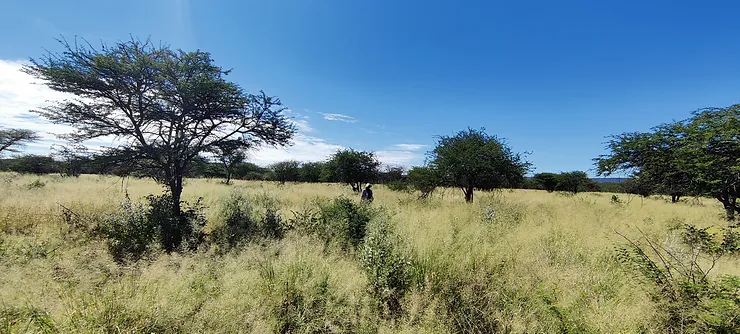Bush encroachment poses a significant environmental challenge, especially in savanna and arid regions like Namibia, Botswana, and South Africa. The expansion of dense woody vegetation disrupts ecosystems, leading to reduced rangeland capacity, lower groundwater levels, biodiversity loss, and compromised ecosystem services. Climate change, land use practices, and ecological shifts are major drivers of this issue, resulting in considerable ecological, economic, and social impacts.
Addressing bush encroachment is essential for sustainable land management. Effective strategies involve a combination of ecological knowledge, practical interventions, and community engagement. Current control methods include mechanical and chemical treatments, fire management, and integrated land management approaches. However, bush encroachment remains a persistent problem, highlighting the need for continued research into its ecological, socio-economic, and climatic drivers.
Collaborative efforts with local communities and neighboring countries are vital for developing comprehensive solutions and sustainable land management practices. While bush control can be costly, particularly through labor-intensive or mechanical thinning methods, developing value chains and marketing biomass products can offset these costs. Regional policies and regulations support sustainable bush control and biomass utilization, contributing to land restoration and sustainable land use practices at multiple levels.
The SteamBioAfrica focuses on developing innovative solutions to enhance the efficiency and environmental performance of biomass conversion processes through steam-based technologies while addressing bush encroachment phenomena.
Read Land management report here https://lnkd.in/eWMZCGNb

